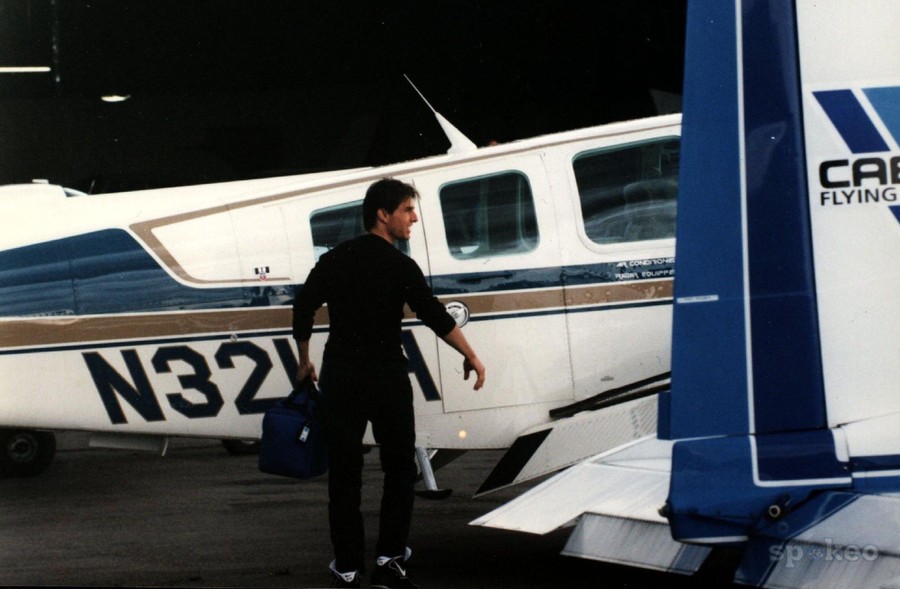FINALLY, after threatening it for years, one airline has begun calculating its fares based on passengers’ weight, so the heavier you are, the more you pay. This is very good news for certain people who’ve felt hard done by in the matter of air fares up to now: Revenge of the 50-Kilo Woman, you might say.
Samoa Air claims, though not altogether convincingly, that its decision makes for the fairest possible means of charging passengers for air travel.
“The airline industry has this concept that all people through the world are the same size,” said Samoa Air chief executive Chris Langton, positively bathing in the sudden wave of free publicity. “Anyone who travels at times has felt they have been paying for half of the passenger next to them,” he added.
The idea is that passengers will be charged per kilo, having declared their own weight at booking. Yes, you declare your own weight. Heh heh. However, you’ll also be weighed at the check-in desk, so fibbing won’t be… Wait, hang on. You’ll be weighed at the check-in desk? In front of everyone?
This calls to mind those fairground ‘I Speak Your Weight’ machines from the 1930s, in which you insert sixpence and then stand on the machine, aghast, as details of your excess tonnage are revealed to all and sundry. The alternative, ‘Pay Me Not to Speak Your Weight’ machine was a much better idea but for some reason it never took off…
Nevertheless, despite this and other reservations (forgive the pun), the concept has on the whole been greeted favourably, though not necessarily because it’s actually a good idea or anything. One reason it’s been received with interest is that no one ever seems to mind it when overweight people are held accountable for their perceived failures – or even demeaned because of them (though that would properly be the subject of a whole different column).
Another is that hardly anyone has been able to resist wondering, with a sort of horrified fascination, how this practice might work out if Ryanair were to adopt it.
How might it be policed? Would you be railroaded out of the queue for check-in and asked to squeeze yourself into a metal cage, to see if you fit?
Would you be constantly being sized up by shrill Ryanair flight attendants, who are themselves so compact that they could be comfortably stowed in twos and threes in the overhead lockers (which would probably make for a pleasanter flight for everyone on board, but I digress).
In considering this, it must be borne in mind that men will, generally speaking, be worth more to airlines than women, which will surely cause trouble, while fat people will be worth more than anyone else.
Chris Langton didn’t mention the fact that Samoa is the fourth-most obese country in the world, according to the World Health Organisation, so Samoa Air probably isn’t running the risk of having planeloads of skinny malinks running the company into bankruptcy.
Take a Lilliputian creature such as Tom Cruise, for instance. An airline charging by weight would practically have to pay him to fly (except in so far as he adds value by transporting various thick-set Scientology types around with him at all times).
And skinny people generally will represent very poor value to a cost-conscious airline. After all, it takes a lot of effort to stay fashionably thin. A great deal of nice chow must be sacrificed. That sacrifice is often balanced by a lot of shopping for a lot of nice clothes that show your skeleton to its best advantage. What you save on carbohydrates you spend on Karl Lagerfeld.
Consequently, thin people tend to pack almost everything they look cute in, using up the entirety of their luggage allowance, rounded down to the nearest nanogram. Then they sit through the entire flight, with their hands dangling abstemiously in the gaps between their bony thighs, saying no to all the beer and hotdogs.
Fat people, by contrast, can never find anything to fit them, so they travel light, thus reducing the aircraft’s payload despite having paid more than anyone else for their tickets. And of course they famously can’t go more than ninety minutes without a snack, so even short-haul airlines get to offload their entire stockpile of money-making meatball subs before they expire (though in truth, a meatball sub doesn’t so much have an expiry date as a half-life).
In view of this, Ryanair would have to think up inventive ways to lure the more profitable obese travellers on board its flights. You dread to imagine what meretricious advertising the airline might employ to do this. Just how low might it stoop? You dread it, and yet you cannot help wanting to see it.
Published in the Irish Mail on Sunday, 7th April 2013
